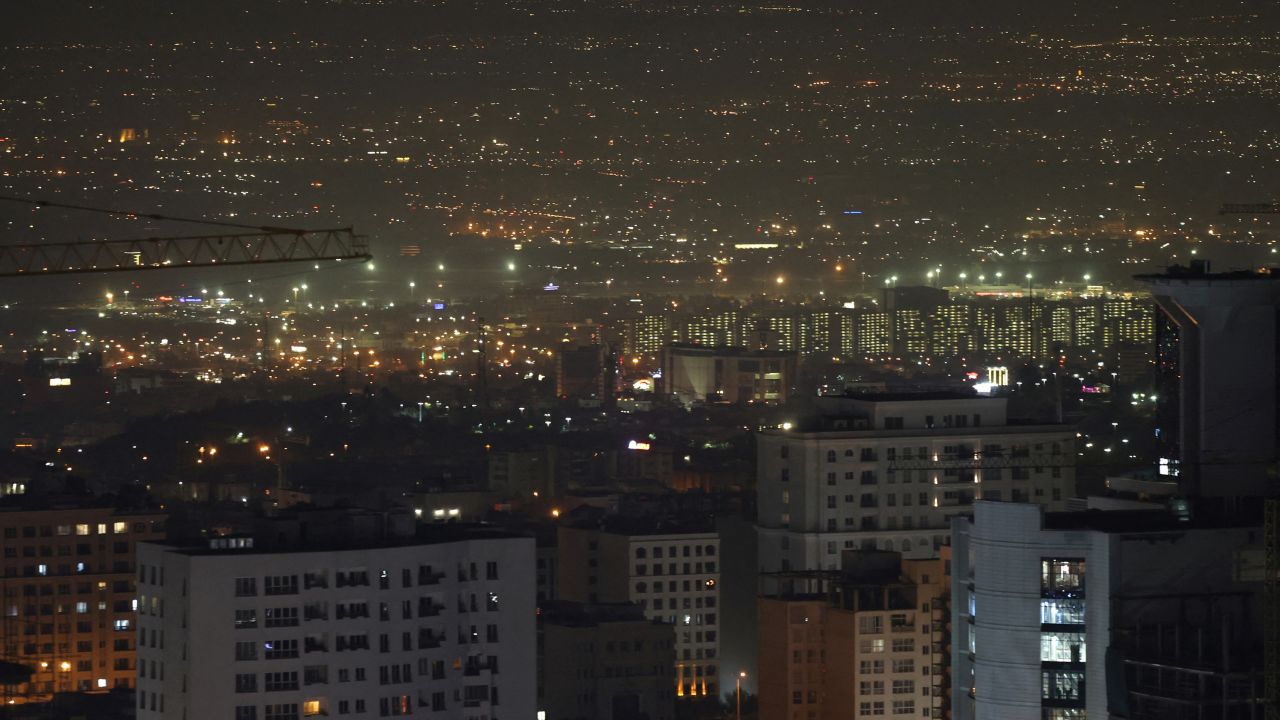The Islamic regime in Iran, with a press of a button, can send missiles towards Tel Aviv, and Israel’s fighter jets have made it clear they can reach deep into Iran, even as far as Tehran. Neither side has released a full report on what truly happened. Israel claims 140 jets hit 20 targets across Iran. On the other hand, the IRGC denies this, calling it false. The state media has stayed silent, offering no word so far.
Rumors are spreading among Persian-speaking users on Twitter and Telegram. Some say newly built military sites controlled by the IRGC were the targets, but nothing solid has come out yet. Verified reports confirm a factory destroyed in an industrial zone south of Tehran, a factory known for making machinery and industrial parts.
تصاویر دریافتی از دو منبع مختلف: 'آثار هدف قرار گرفتن کارخانه تکساز، شهرک صنعتی شمسآباد در جنوب تهران'
— Vahid Online (@Vahid) October 26, 2024
میشه اینجا روی نقشه:https://t.co/m2OnEZP1U2#Iran #Israel pic.twitter.com/IAfEslgihH
ویدیوی دریافتی از اشیای نورانی در آسمان تهران pic.twitter.com/idUlKLOnvx
— Vahid Online (@Vahid) October 26, 2024
The Iranian media insists all is calm. Since early morning, the IRGC’s news agency has been posting updates about a peaceful Tehran, mentioning schools reopening, a horse-riding competition, and a small rise in the stock market as signs of normalcy. But this is a country where censorship rules. Clear and truthful news can’t be expected.
No images have surfaced from cities or villages, and so far, there’s no indication that civilians were hit. But under such tight control, who can say for sure?
Scrolling through the headlines adds to a growing sense of despair. In a place where censorship is the order of the day, no one truly knows what went down last night. Details about the attack and its impact are still missing, and social media is flooded with echoes of Israeli narratives. Stories of wiped-out missile capabilities and debates over the legitimacy of military strikes fill the pages, but none of it can be confirmed. With this blackout, rumors only spread further.
A government spokesperson, calling it a “pseudo-attack,” claimed Iran’s air defense successfully handled it. Their language feels different this time. The absurdity only grows as the state media runs a headline about “the return of Iranian saffron to its rightful place,” quoting the president—two military officers were killed last night, and yet the country’s leadership remains mute. This silence isn’t just odd, it’s a sign of their confusion. A regime unable to be honest with its own people.
What’s certain is that the regime’s ability to crush its own people is stronger than any claim of defending the oppressed. Khamenei’s “Axis of Resistance” doctrine was always about exporting terror and war beyond Iran’s borders, sacrificing the region for their Islamic conquests. But the people of Iran are not silent. The truth will surface. That’s why the Revolutionary Guard rushed to declare it a crime to share images. They know the silence won’t last.
Eventually, after days of denial, the regime will start speaking on the matter. This isn’t the first time—Israel struck sites in Isfahan before, and they stayed quiet for weeks. The regime will negotiate with the West, selling the image of “Islamic mercy” and “strategic patience,” all while this cold war drags on. Iran and Israel have moved from shadow battles to open confrontation, but neither power wants to see the Islamic Republic fall, and neither is ready to risk everything. Hopefully, the world won’t burn in the process.
Today is Saturday, and Iran’s financial markets are stirring, but the rest of the world will hold its breath until Monday. We’ll see then how the global markets react. For now, they can control the story, but come Monday, they won’t be able to hide the fallout.
The idea that Washington stopped Israel from launching a broader attack is beyond belief—it’s a global humiliation. Yes, an attack of that scale holds risks for Israel, given the missiles aimed at it, but launching those missiles isn’t a simple decision for Iran either.
Don’t get tangled in the word games of these madmen. The Islamic Republic will cut a deal with the West eventually. The condition will be that their proxies stop posing a real threat to Israel. Israel doesn’t need to wage full-scale war. They’ve already weakened Iran’s power structure with targeted strikes, proving they can hit without needing an all-out assault. It’s a slow grind, chipping away at Iran’s capabilities.
Now, something else is becoming clear. Countries we wouldn’t expect are condemning Israel, and this gives Iran more ammunition for their anti-West rhetoric. But that’s the external game. Inside, the regime is still crumbling under the weight of its own crisis. It needs to rebuild its economy, which is what put Masoud Pezeshkian in the presidency in the first place.
The fate of the Iranian people will be determined by their own hands and by global support for the people of Iran. Neither the Israeli government nor Western governments are interested in the fall of the Islamic Republic. Instead, they are pursuing their usual pragmatic approach to tame the regime so it will end its hostility towards the West and no longer pose a threat to these governments. But for the people of Iran, the Islamic Republic is a constant threat, a monster that feeds on the blood of the people.
The people of Iran have never, and will never, stop fighting to overthrow this regime. Today, with the many defeats the Islamic Republic has suffered and the widespread dissatisfaction of the people over living conditions and lack of rights, the regime is in a severely weakened position. It is the people who, through another uprising, widespread protests, and strikes, can overthrow this regime and create a new future for themselves.









A useful perspective.